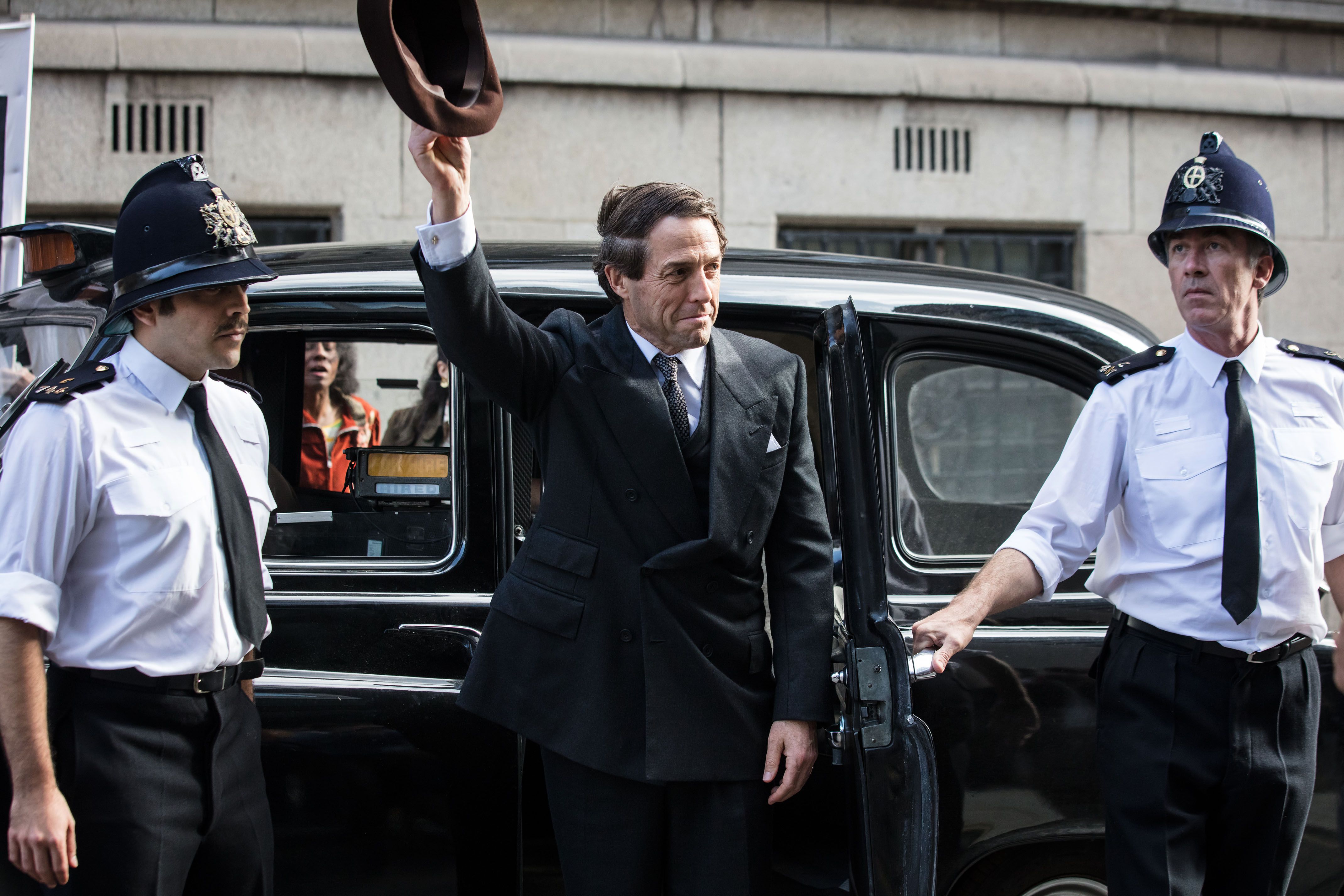With shows like The Crown dominating Netflix and exposing viewers to the seedier aspects of life in the royal family, it's no surprise that viewers are taking an interest in the vagaries of other historic British scandals. Hugh Grant's A Very English Scandal, released on Amazon Prime in 2018, handles the real-life story of Jeremy Thorpe, an aspirational young Liberal MP (Member of Parliament), who seeks to conceal his homosexuality from the British public in the 1960s and '70s.
When he finds his career prospects threatened by an unstable ex-lover, Norman Josiffe (Ben Whishaw), an increasingly ruthless Thorpe resorts to desperate measures: unsuccessfully hiring a hit man to kill off Josiffe and prevent him from revealing their affair to the insatiable British press. Both Grant and Whishaw bring humanity to their characters — from Thorpe's devastation following the death of his unsuspecting wife, Caroline (Alice Orr-Ewing), to Josiffe's worsening struggles with mood swings and impulsivity — which allows us to empathize with even the most shocking of their actions in the wake of their break-up. And though the show plays with the comedic aspects of Thorpe's role as Josiffe's seductor-turned-nemesis — Grant is truly at his caddish best here — what's most appealing is its portrayal of political ambition and intrigue gone very, very awry.
Blackmail and Public Humiliation
Tellingly, Thorpe is willing to resort to blackmail to counter Josiffe's escalating threats, and even ropes fellow MP Peter Bessell (Alex Jennings) into helping him out financially. Though Thorpe's fear of professional ruin and ostracization is far from ill-founded, it's still hard to imagine what kind of person would sink to such depths, unless one considers the violent intersection of the British press with public life in the 20th century. In the absence of the Internet, newspapers were society's primary information source, and undoubtedly dictated the terms of acceptable behavior in the public eye.
Even if Thorpe were to deny Josiffe's allegations — which he eventually, and memorably, did — his political and personal image depends on how well he can control competing public narratives about his actions. With no social media account to help flagrantly deny the truth, Thorpe's stab at shutting down Josiffe's story has limited success, even as he's acquitted of conspiracy to murder. The more libertine sensibilities of the 1970s don't truly extend to homosexuality, concealed or otherwise, and the series later reveals that Thorpe never again ran for public office. The combination of societal disdain for gay men, plus the media's mushrooming appetite for tabloid-worthy stories, proves to be his professional undoing.
Thorpe, Josiffe, and the Culture War
While Thorpe has furthered his career by keeping his sexuality a secret — even going so far as to marry a woman to enhance his approval rating — the younger Josiffe, with a string of unsuccessful heterosexual relationships to his name, rejects his ex-lover's Silent Generation repression. He instead uses the cultural upheaval of the 1960s and '70s to question the status quo that has allowed Thorpe's constant maneuvering, and descent into criminality, to go unchecked. But his role at the center of the tabloid storm doesn't protect him from personal troubles, and the trial, instead of being a flashpoint for changing attitudes towards homosexuality, becomes a battle between Thorpe's air of respectability and Josiffe's indifference to cultural and class norms.
Ultimately, the British public chooses the former, thus affirming the rigid social hierarchy that has allowed men like Thorpe to flourish regardless of their actions. Though his reputation is tainted by Josiffe's accusations, Thorpe's acquittal is a boon to the upper-class politicians dominating Parliament and vying for control of Downing Street. They can still get away with (attempted) murder.
Though A Very English Scandal makes it clear that neither Josiffe nor Thorpe really got a satisfactory ending — after all, blackmail and conspiracy to murder aren't generally recipes for happiness or success — it does present an eminently entertaining spin on the politics of power and ambition in the public sphere. Josiffe's misadventures, and Thorpe's clumsy attempts at intrigue, paint an unflinching portrait of a society so obsessed with reputation and status that it's become damaged in the process.




